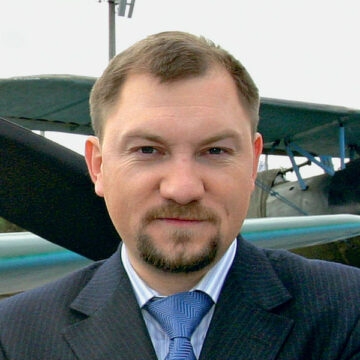Russia entered 2015 burdened by a confrontation with Ukraine and the Western countries, which had thrown their weight behind Kiev. Western hostility took the form of painful economic sanctions against Moscow. Nevertheless, the collapse of the oil prices that began in the second half of 2014 proved a bigger problem for the Russian economy by baring its deep-seated structural problems. As a result of the plummeting oil prices and sanctions, the Russian ruble lost almost half of its value in the winter of 2014-2015, and the country entered a period of economic depression.
A year on, it has become clear that the Russian economy has weathered these problems better than many had expected. The economic downturn has proved not too deep, and the economy has reached a degree of stability. A major financial and banking crisis has been averted. Parts of the Russian economy have even benefited from the currency devaluation and from the mutual trade restrictions introduced by Russia and the West, which have spurred import substitution and exports in some sectors.
Throughout 2015, one of President Vladimir Putin’s key priorities was to wipe the Ukrainian crisis off the board on relatively favorable terms in order to normalize relations with the West. In early 2015, the pro-Russian rebels in eastern Ukraine, supported by a limited regular Russian force, inflicted painful blows on the Ukrainians at Donetsk Airport and the town of Debaltsevo, forcing Kiev to sign the Second Minsk Accords in February. As a result, military tensions in the region subsided, and the situation remained relatively calm for most of the year.
Russia’s economic problems have proved quite manageable; they have had little effect on Russian military spending, which remained on target in 2015 and will face only minor nominal cuts in 2016. The country’s ambitious armaments program has not faced any significant disruption. It has run into trouble in some individual sectors (especially shipbuilding) because imports of some types of engines and components from Ukraine and the Western countries have stopped, forcing Russian defense contractors to turn to domestic or Chinese suppliers. The Russian defense industry is still awash in cash from government contracts, and Russian defense exports remain steadily high.
In the Russian Armed Forces, meanwhile, Defense Minister Sergey Shoygu has been pressing ahead with large drills and sudden unannounced deployments to test the forces’ readiness. He has also made efforts to increase the conventional forces’ numerical strength. The MoD has begun to deploy several new Army and Air Force units (especially in western Russia, as well as Crimea, which is being rapidly militarized). The government has also announced an ambitious program of doubling the size of the elite Airborne Troops (the VDV service). The Air Force has been restructured to become the Aerospace Forces. This was done to achieve greater integration between the Russian air strength, air defenses, missile defenses and space capabilities.
Russia has an unresolved and chronic problem with filling all the vacancies in its armed forces, so the deployment of new units represents a serious challenge.
At the same time, the anti-Russian ramping up of NATO’s military activity in Eastern Europe, which the NATO countries do not even trouble to disguise, has not led to any tangible changes in Russian military planning so far. This leads us to believe that Moscow does not consider a major military confrontation with the West a real possibility. Russia is increasingly relying on its strategic nuclear deterrent to counter the Western military threat — which makes any strengthening of conventional forces in Europe pointless. In essence, Russia is tacitly adopting a version of America’s massive retaliation doctrine of the 1950s and 1960s. That could potentially give the nuclear factor an even greater role in Russian strategic planning.
The unprecedented Russian military operation in Syria launched in September should also be viewed in the context of President Putin’s efforts to achieve a broad settlement with the West. That operation is the first major Russian military intervention outside former Soviet territory in the post-Soviet period. The Russian campaign in Syria is accompanied by a major propaganda drive and a demonstration of Russia’s increased military and technological prowess, such as ship-based and air-launched cruise missiles, high-precision bombs and UAVs.
It remains unclear, however, whether the Russian intervention in Syria will bring the results Moscow is hoping for — such as stabilizing the Assad regime, weakening the Islamic State group and achieving at least a partial restoration of partnership with the West from a position of strength. So far, the Russian military campaign has failed to yield any significant military results — but it has further complicated Moscow’s relations with the United States and several regional players, especially Turkey.
The unprecedented downing of a Russian Su-24M bomber by Turkish fighter jets has brought relations between Russia and Turkey to the brink of military confrontation. In 2016, President Putin will face a very serious problem of keeping the military confrontation in the region with the NATO countries from spiraling even further, while also preventing Russia from becoming deeply entangled in the Syrian conflict as a whole.
The complexity of the Syrian situation is compounded by the ever growing confrontation with Ukraine. Kiev is openly sabotaging the Minsk Accords and wants an escalation in the Donbass so as to attract more international attention and sympathy, and thereby persuade the West to ramp up its pressure on Russia.
In 2016 Moscow will face the prospects of growing crises on two fronts at the same time. In both cases, the objective for President Putin will be to walk a fine line between protecting Russian interests and preventing an even greater confrontation with the West.










